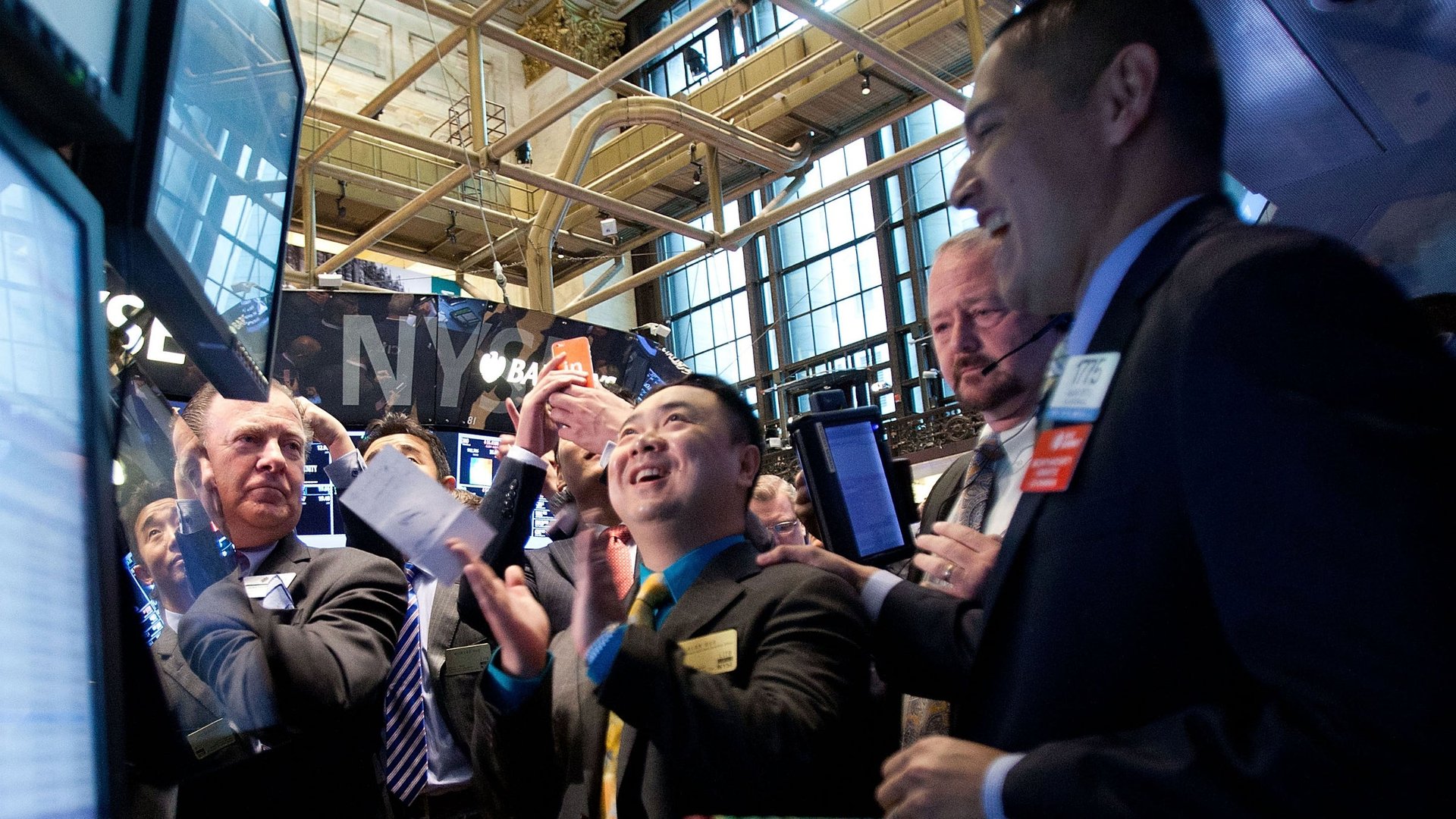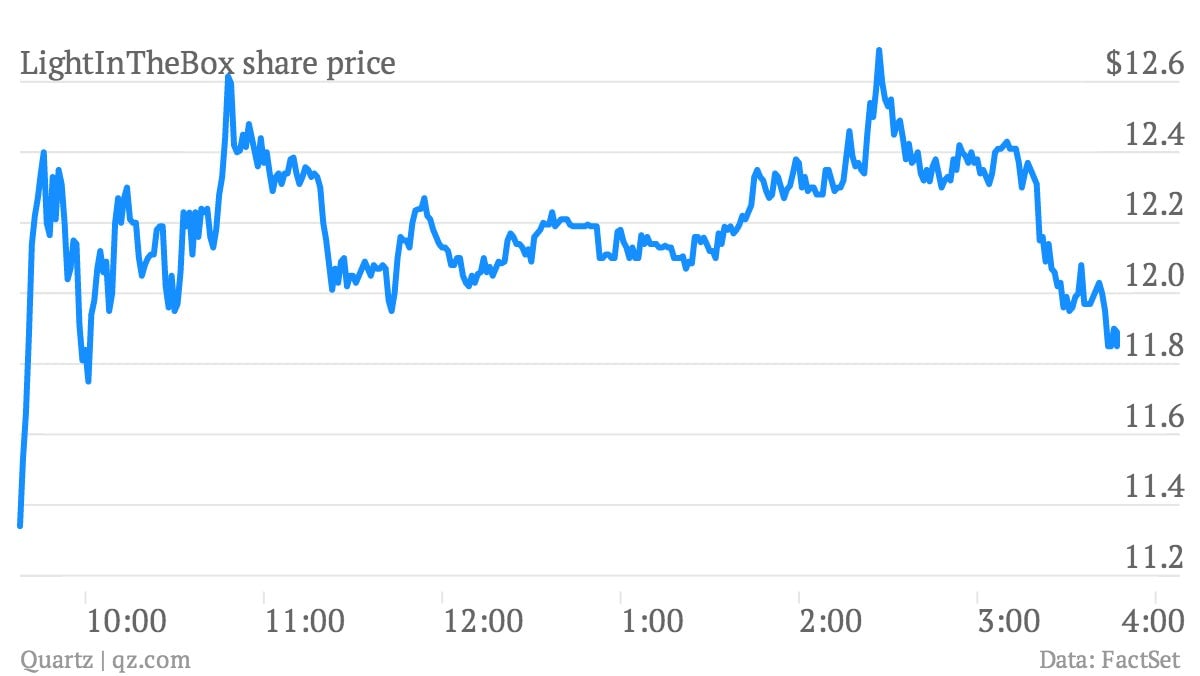LightInTheBox’s solid opening day could renew US investor love affair with Chinese IPOs
Chinese tech companies like Baidu, Sina and Ctrip were once the darlings of the US exchanges. That changed abruptly in 2011, when financial and accounting frauds from a slew of Chinese companies spurred a short-selling bonanza, followed by mass de-listing. Guilt by association tarnished the reputations of even the most well-regarded Chinese companies, frightening off would-be IPO candidates. Since 2012, only two companies—VIPshop and YY—have listed on New York exchanges.


Chinese tech companies like Baidu, Sina and Ctrip were once the darlings of the US exchanges. That changed abruptly in 2011, when financial and accounting frauds from a slew of Chinese companies spurred a short-selling bonanza, followed by mass de-listing. Guilt by association tarnished the reputations of even the most well-regarded Chinese companies, frightening off would-be IPO candidates. Since 2012, only two companies—VIPshop and YY—have listed on New York exchanges.
That’s why today’s debut of LightInTheBox (LITB), a Chinese e-commerce retailer, is something of a bellwether—or a bubble, as Bloomberg columnist Jonathan Weil argued, viewing it as a yet another shady Chinese fraud.
Bellwether or bubble, its share price performance also tested the market potential for puffed sleeves and taffeta. LITB allows consumers to order tailor-made clothes sewn by small teams of seamstresses in Suzhou, though it also sells a random smattering of things like sporting goods and home furnishings (here’s our more detailed rundown of the business model, though PandoDaily has the definitive long take).
Though to skeptics like Weill LITB might be a seller of “just a lot of knockoffs,” founder and CEO Alan Guo claims his model is a no-brainer. “China was producing a large number of…wedding dresses, prom dresses and so on,” Guo told Quartz earlier today. “So to us it seems that this idea is obviously compelling to the consumers.”
And to US investors, it turns out. After pricing its shares at $9.50, smack in the middle of its target range, LITB opened at $11.16 and closed 23% up on its first day:

Weill’s criticism is a reminder that listing in the US—as opposed to in, say, Hong Kong—remains a gutsy move for Chinese firms. But Guo said a US-listing was inevitable. “There are a lot of technology-savvy investors in the States and/or participating in the market, and we are a global consumer-facing B2C online retail company—it’s kind of technology-powered retail,” Guo told Quartz. “So we feel it’s a very good fit.”
But beyond being a tech story, a major reason why the company chose to list on the NYSE is that its consumers are global, said Guo. China sales are actually but a sliver of total revenue, and the website is available in 17 languages. LITB brought in more than half of its revenue from Europe last year, and nearly a quarter from North America.
Given LITB’s international slant, it may be neither a bellwether nor a bubble. However, David Ethridge, who heads up the capital markets group at NYSE Euronext, said its importance can’t be overstated.
“Everyone in the market was very focused on how this company was going to perform,” Ethridge said, noting that neither VIPShop’s or YY’s IPOs made a big impact on wariness of Chinese companies about listing in New York. “I’m hopeful that this time with LightInTheBox, with the performance they had today—priced in the middle of the range well oversubscribed and trading up nicely today—that should create a more positive feel.”